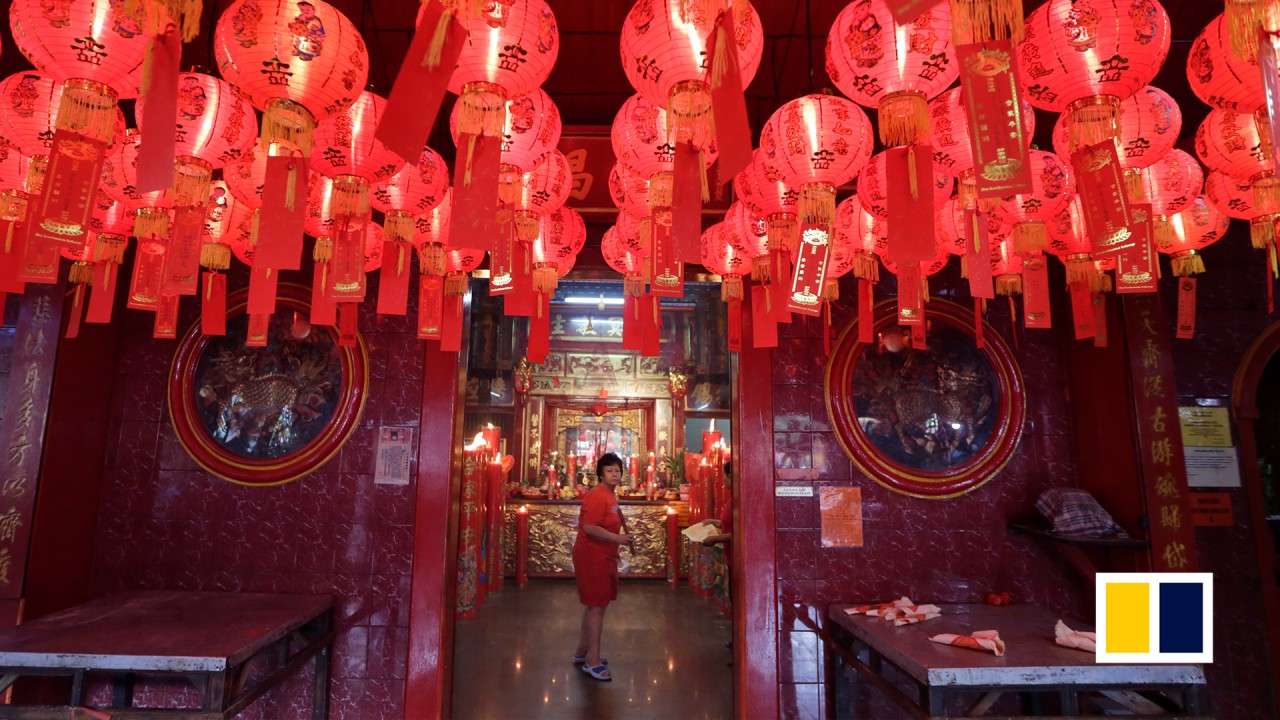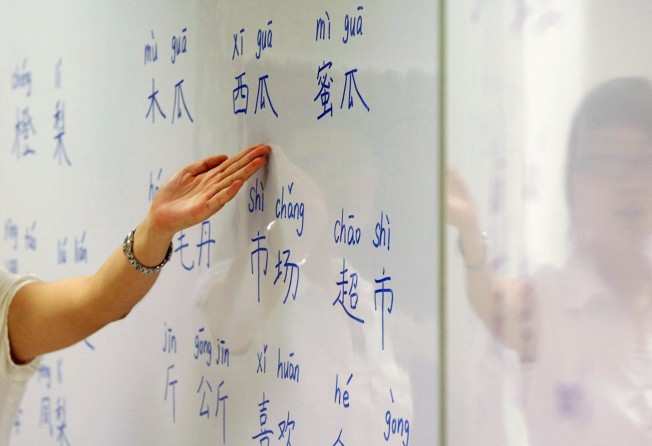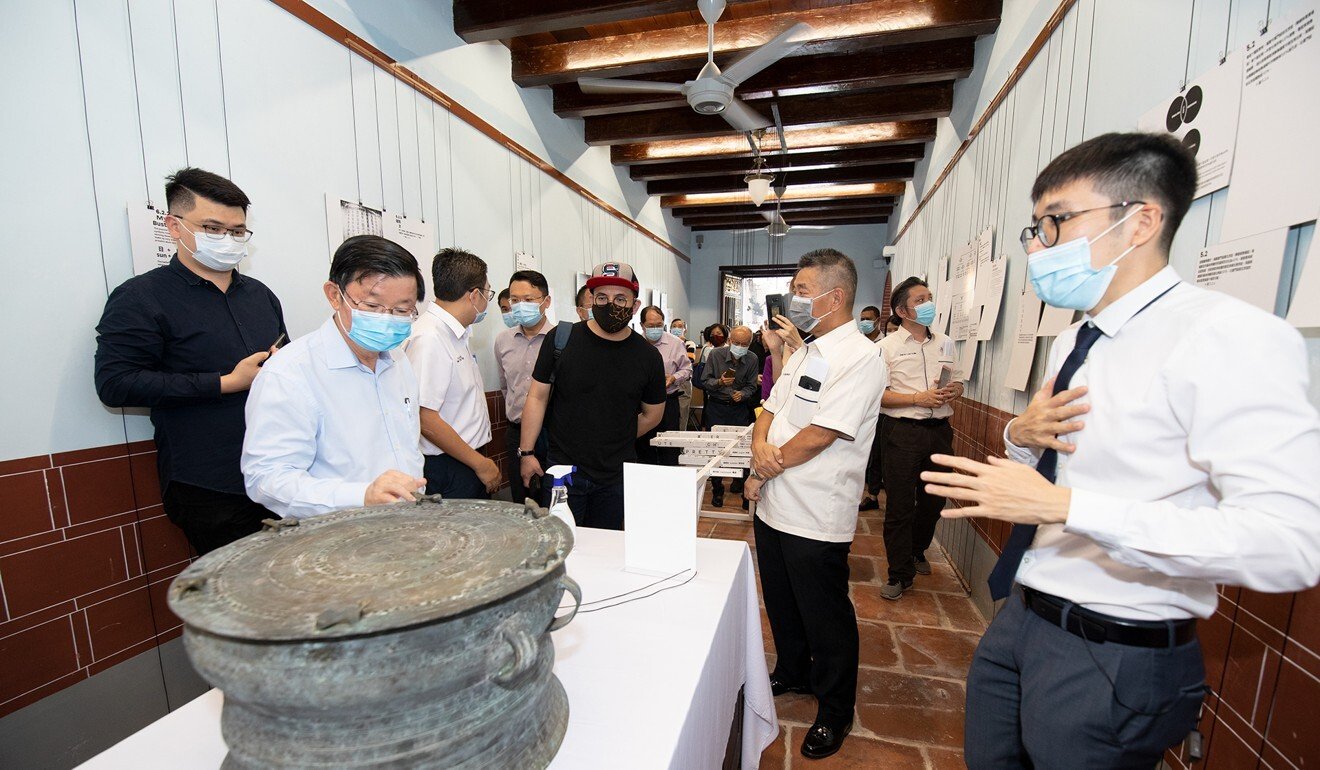
03:25
The Indonesian Chinese still grappling with discrimination

When Sim Tze Wei began working to raise awareness of the Hokkien language, he never expected he would be accused of trying to divide the Chinese people.
“Han Chinese nationalists everywhere are keen to equate Mandarin to [real] Chinese,” said Sim, adding that there are those who find ethnic Chinese people speaking in Chinese languages other than Mandarin “as a sign of disunity and weakness”.
The Malaysian-Chinese linguist, who is in his mid-30s, is president of the Hokkien Language Association of Penang. Through the association, Sim is campaigning for the wider use of Hokkien, and advocating that it be reinstated as a language of instruction in independent and Chinese primary schools in the northern Malaysian state, as he fears Hokkien will “continue to be eroded by Mandarin and English”.
Sim grew up in Penang and spoke Teochew with his family, before picking up Hokkien from residents of the state, where it is the lingua franca of the majority ethnically Chinese population – who originally emigrated from the southern Chinese province of Fujian.
“Hokkien, being one of the largest linguistic groups in Malaysia, is one of the few southern Chinese languages that stand a chance to survive,” he said. “I grew up with it and I have the knowledge to do something about it.”
He said Hokkien was “not a subset or dialect of Mandarin”, with the latter originating in the country’s north.
“By calling Hokkien a Chinese dialect, people would perceive Hokkien as a dialect of Mandarin, and through that, [Han Chinese nationalists] would achieve their aim of denigrating the status of Hokkien,” Sim said.

03:25
The Indonesian Chinese still grappling with discrimination
When Chinese people from the mainland settled across Asia, they brought their own languages with them. Ethnic Chinese populations in countries such as Malaysia and Indonesia have been speaking other Chinese languages – including Cantonese, Teochew and Hakka – for generations.
While Beijing’s stronger presence in Southeast Asia in recent years has seen a rise in the popularity of Mandarin, with experts saying the region is home to the majority of Mandarin learners, this growth is edging out other Chinese tongues – Hokkien among them.
Catherine Churchman, who lectures in Asian studies at the Victoria University of Wellington in New Zealand, predicted five years ago during field work in Penang that the language would disappear in three decades’ time unless something changed.
Churchman, who has been studying Hokkien since 2000 and is currently working on a Penang Hokkien-English dictionary, explains that many Penang locals were told in school that there was no use for Hokkien.
“If I see [more] parents speaking Hokkien to their children and [more] children speaking Hokkien to each other again, [only] then I will say that the renaissance is happening,” she said.
Jason Lim – senior lecturer in Asian history at the University of Wollongong in Australia, who also researches ethnic Chinese communities in Southeast Asia – said Mandarin had become the main language for the region’s Chinese diaspora.
“More ethnic Chinese in Southeast Asia are speaking Mandarin, either because they see Mandarin as a cultural connection with China, or because they accept Mandarin as the language of ethnic Chinese peoples,” Lim said. “Furthermore, Chinese movies and television series are increasingly popular, and Mandarin is used.”
He also found that Hokkien had declined in use in Southeast Asia over the past four decades, adding that it “could become less and less appealing” as older generations passed away.

Over the years, Asian governments have also put in place policies to encourage the usage of Mandarin. Singapore implemented its Speak Mandarin Campaign in 1979 to promote it over other Chinese languages. In Taiwan, the government strictly enforced the usage of Mandarin throughout its martial law period from the 1940s until 1980s, while discouraging the use of local languages including the Taiwanese variant of Hokkien in schools.
In Indonesia, Chinese languages were not allowed to be publicly used under the three-decade rule of President Suharto, who suspected ethnically Chinese Indonesians of having links with the Chinese Communist Party. Many in the community have since learned Mandarin as a means of reconnecting with their culture.
A by-product of these efforts, according to Sim from the Hokkien Language Association of Penang, is the nationalistic reaction that looks to put down Chinese tongues other than Mandarin.
“Han [Chinese] nationalists believe that this single Chinese language has since diverged into different dialects and therefore should be rectified in order to make Chinese people great again,” he said.
“Saying that ethnic Chinese have to speak Mandarin in order to be considered ‘legit Chinese’ is like saying every European has to speak English to be considered a ‘legit European’.”
Sim and his team rely on public donations to sustain their operations, and are on the lookout for sponsors and hosts for various exhibitions and tours to raise international awareness on language issues – including Hokkien.
But for now, he hopes the association’s Speak Hokkien Campaign strikes a chord with youths, attracting them to speak the language and encouraging those whose ancestors never spoke Mandarin to question the notion of it being their “ancestral tongue”.
“The promotion of [Mandarin and English] should not come at the expense of replacing our languages,” Sim said.